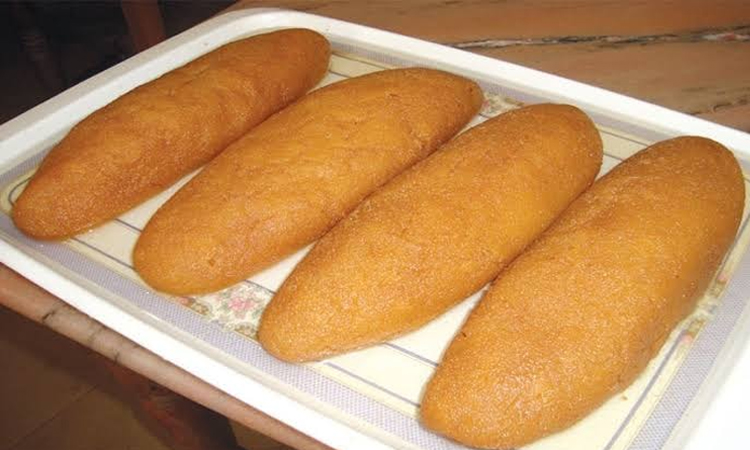News Flash
News Flash

By Tanver Hayat Khan
NETRAKONA, Sept 27, 2025 (BSS) - It's soft, sweet, and shaped like a pillow, but it carries the weight of a hundred years of tradition.
The iconic "Balish Mishti" of the district has officially been recognized as a Geographical Indication (GI) product, elevating the beloved local delicacy to a symbol of national heritage.
Crafted from curd, flour, and sugar, and finished with a velvety layer of thickened milk (malai) on top, this confection has long been a centerpiece of celebrations, from weddings and birthdays to Eid and Puja.
Known affectionately as "Goyanath's Balish", the sweet is not just a treat, it's a story passed down through generations, now imprinted into Bangladesh's cultural heritage map.
Tourists from across the country who visit Netrokona rush to "Goyanath Mishtanno Bhandar" on Barhatta Road to taste the sweet. The famed sweet has now crossed national boundaries to gain recognition abroad as well. Many people carry it as a memento of their district when travelling overseas.
The sweet is prepared from pure cow milk cottage cheese, sugar and flour. At first, the cottage cheese is mixed with a small amount of flour to make dough which is shaped into various pillow-sized pieces. These are fried and soaked in hot sugar syrup for long hours until they become saturated with sweetness. Before selling, a coating of malai or thickened milk is applied on top. The makers also maintain some secrecy in the preparation process for business interest.
Once comparatively cheaper, the price of the Balish has increased due to higher costs of raw ingredients. It is sold in different sizes and prices ranging from Tk 30, Tk 50, Tk 100, Tk 300, Tk 500 to Tk 1,000. The larger ones, especially the Tk 1,000 Balish, can easily be shared among five to six people.
Talking to BSS, Babul Modak, one of the present owners of Goyanath Mishtanno Bhandar, said that the sweet was originally invented by Goyanath Ghosh, a renowned confectioner of the Ghosh family over a century ago. His innovative creation soon earned great popularity and came to be known as "Goyanath's Balish".
During the Partition of 1947, many members of the Ghosh family migrated to India, but he didn't do so. Later in 1969, Goyanath himself also left. Before leaving, he sold the shop to its then chief artisan, Nikhil Modak. Since Nikhil's death, his sons Babul, Dilip and Khokon Modak have been running the shop.
Babul said, "Our founder Goyanath Ghosh established the shop more than 100 years ago. In 1965, he sold it to my father, who was his chief artisan. Since then, our family has been operating it. We have no branches outside Netrokona and we don't sell online. Anyone who wants to taste Balish must come here."
Netrokona Deputy Commissioner Mohammad Abdullah Al Mahmud Zaman told BSS that Balish is synonymous with Netrokona. "We followed all procedures and applied for GI recognition, and we have heard that approval has been granted. Once we receive the official certificate, we will celebrate it as a matter of pride," he said.
He also noted that the district had earlier received GI recognition for its Bijoypur White Clay and that efforts will continue to include more regional products in the GI list.
Over the decades, the sweet has been celebrated in local rhymes, folk verses, and even in the writings of late acclaimed author Humayun Ahmed. Local poets and writers have also dedicated works to the famed delicacy.
One such folk rhyme about Balish is -
"The father-in-law got angry and complained on receiving jam and golla/The promise was that the son-in-law would bring Netrokona's Balish."
Rhymester Sanjoy Sarkar wrote:
"Cash money doesn't work,
Nor do oil massages,
The boss is pleased only with Netrokona's Balish."
The once-small Goyanath Mishtanno Bhandar on Barhatta Road has now expanded with its own production house and additional outlets on Station Road and Mechuabazar, though still limited within the district. The shop remains crowded with customers throughout the day.